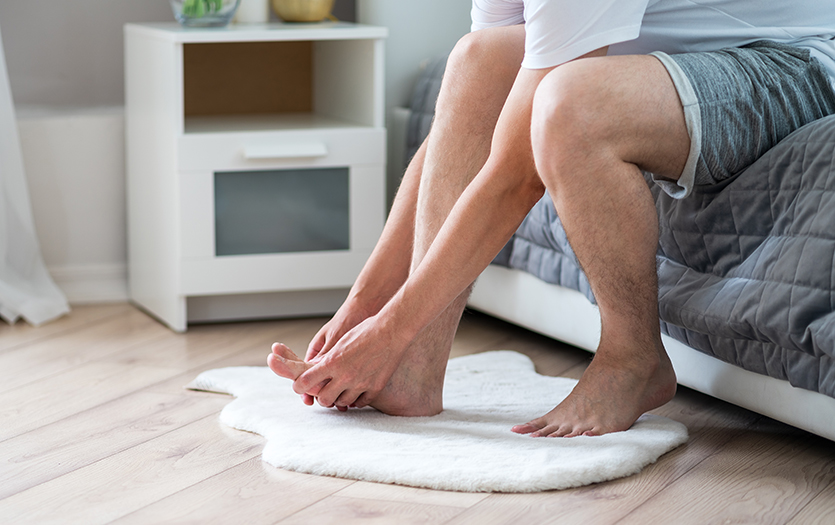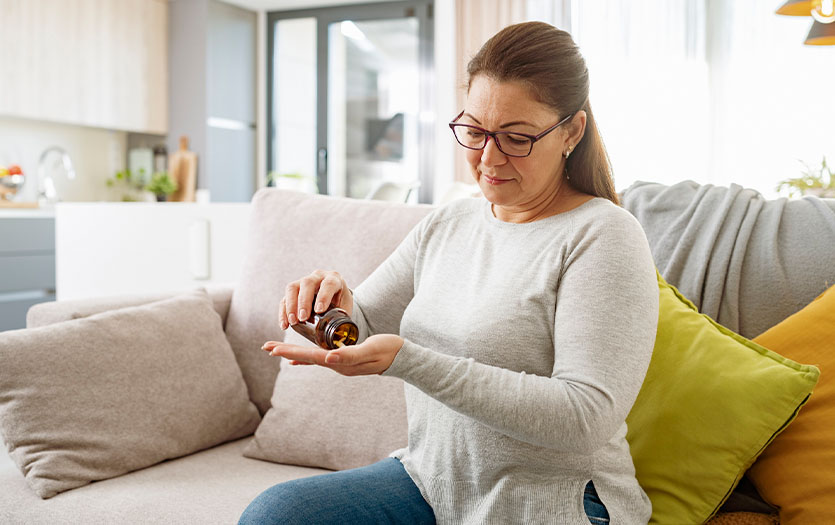
Gout is a form of arthritis caused by a buildup of uric acid crystals in a joint. The condition is characterized by sudden attacks of pain, swelling, redness and stiffness, usually in one joint, especially the big toe.
Triggers
While gout can come on without a known cause, it can be triggered by things like drinking alcohol (especially beer), eating or drinking foods made with high-fructose corn syrup, as well as seafood or red meat. Taking certain medicines, such as diuretics, can also cause a flare. Taking your medicines as prescribed and following up with your doctor regularly can help you avoid gout attacks in the future.
Managing gout symptoms
There are things those with gout can try at home to manage symptoms:
- If your joint is swollen, apply ice or a cold pack to the area for 10 to 20 minutes at a time to help reduce swelling. Place a thin cloth between the ice and your skin. You can also try to prop up the sore limb on a pillow while you are applying ice or when you sit or lie down.
- It may help to rest your sore joint for a few days. Avoid activities that put weight or strain on the joint.
Making changes to your diet to manage gout
Medicines have largely replaced the need to restrict what you eat when you have gout. However, many benefit from dietary changes.
- Avoid or limit foods high in purines. Purines (specific chemical compounds found in some foods) are broken down into uric acid. A diet rich in purines from certain sources can raise uric acid levels in the body, and this can lead to gout. Foods high in purines include:
- Organ meats, such as liver, kidneys, sweetbreads and brains
- Meats, including bacon, beef, pork and lamb
- Game meats
- Any other meats or poultry in large amounts
- Anchovies, sardines, herring, mackerel and scallops
- Gravy
- Alcohol, especially beer
- Avoid foods and drinks that are made with high-fructose corn syrup. These include many soft drinks and processed foods.
- Eat foods that may lower your risk of gout, including:
- Low-fat or fat-free milk
- Low-fat yogurt
- Drink plenty of water, which can help your body get rid of uric acid.
- Avoid eating habits that can raise your uric acid levels, such as:
- Diets that cause rapid weight loss
- Alcohol, especially beer and hard liquor such as whiskey and gin
Rheumatology providers are available throughout northeast Indiana. To establish care, call 260-266-8820.
Copyrighted material adapted with permission from Healthwise, Incorporated. This information does not replace the advice of a doctor.



